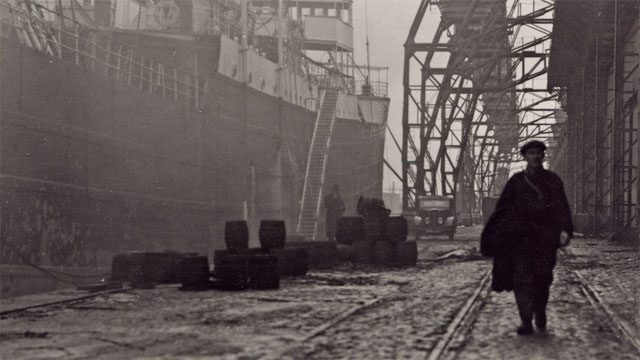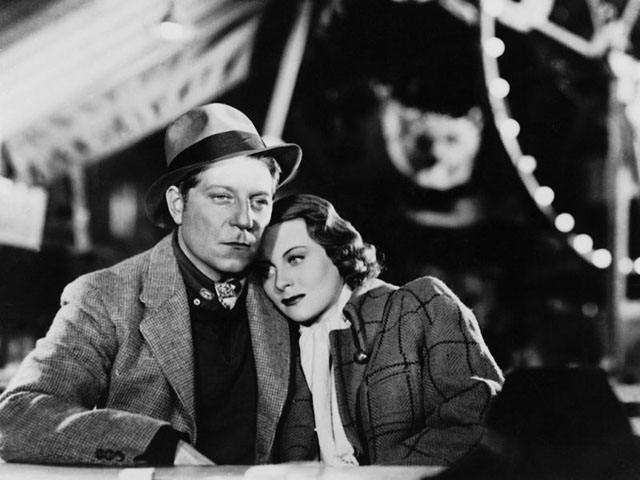“It’s easy now to call Marcel Carné‘s Le Quai des brumes [Port of Shadows] a masterpiece,” begins Ryan Gilbey at the Guardian. “When the film was released in 1938, such a view was more contentious. In the wake of the collapse of France’s Popular Front government, the film was seen as exacerbating the mood of despair creeping into the left…. Even from this distance, it is possible to see what made the picture so troubling. Elements we interpret as romantically fatalistic must have seemed unbearably portentous immediately prior to the war. A dormant boat is moored in the gloom; a milestone indicating a distance of 20km to Le Havre resembles more closely a gravestone announcing the demise of the French port town.”
Graham Fuller at the Arts Desk: “A sublimely melancholy story of alienation and doomed love starring Jean Gabin at his greatest and the revelatory Michèle Morgan (who at 17 was exactly half his age), it was the third collaboration between Carné and the brilliant, anarchic poet-screenwriter Jacques Prévert—dubbed ‘the film poet of revolt’ by Ado Kyrou—who would eventually make eight great films together, seven in the poetic realist school that dominated French cinema from the mid-30s through the mid-40s and forges a link between the German Kammerspielfilm and American film noir. Defining poetic realism has been a tough nut for movie scholars to crack, but simply put it was a lyrical response to the fatalism and decay that was perceived to have engulfed the French working class and lower-middle class in the years leading up and during the war. Films made in this mode both captured the tides of social and political divisiveness and augured the agony of occupation and collaborationism. Alongside Jean Renoir’s Popular Front-influenced Le Crime de Monsieur Lange (1936), his Zola adaptation La Bête humaine (1938) and Carné and Prévert’s Le Jour se lève (1939), Le Quai des brumes sits at the apex of the movement.”
“What is surprising for such a key poetic realist film is that, despite focusing on working-class characters and being set in an industrial port, it eschews much of what we now consider ‘realist’ filmmaking,” argues Paul Huckerby in Electric Sheep. “There are no naturalistic non-professional actors but big box office stars (Gabin) and great film character actors (Michel Simon). There are no handheld cameras and natural lighting: Carné’s films are studio films of the highest artifice, created by highly skilled artists and technicians…. What is often forgotten when discussing poetic realism is how entertaining the films are, and none is more so than Le Quai des brumes.”
More from Peter Bradshaw (Guardian, 5/5), Dave Calhoun (Time Out London, 4/5) and Leo Robson (Financial Times, 3/5). Le Quai des brumes is screening in London at BFI Southbank, Ciné Lumière and the Curzon Renoir.
For news and tips throughout the day every day, follow @KeyframeDaily on Twitter and/or the RSS feed.





